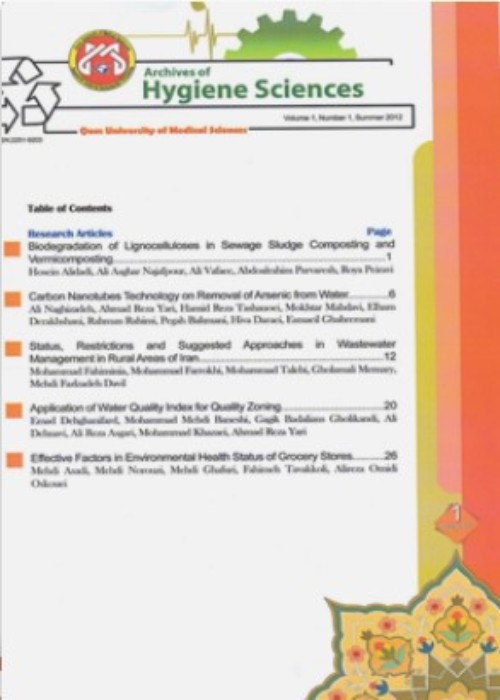Photocatalytic Degradation of Dye Pollutant in Synthetic Wastewater by Nano-Fe3O4 Based on Clinoptilolite Zeolite
Background & Aims:
of the Study: One of the most important environmental pollutants in the alcohol industry is sugar beet molasses. The wastewater of these industries causes the pollution of soil, surface water, and underground water. Iron oxide magnetic nanoparticles have attracted much consideration due to their unique properties, such as superparamagnetism, surface-to-volume ratio, greater surface area, and easy separation methodology. Accordingly, clinoptilolite zeolite has been used due to the low cost and abundance. The purpose of this study was to remove organic and dye pollutants from the wastewater using a new catalyst that can be separated from aqueous solution by magnetic methods and take a step toward the preservation of the environment.
In this study, a new catalyst was prepared by supporting magnetite (Fe3O4) on clinoptilolite zeolite, and the characterization of this catalyst was studied by using scanning electron microscopy images, X-ray diffraction patterns, and nitrogen adsorption/desorption.
The experiments were performed in different operational conditions, such as the amounts of photocatalyst and pH. The mathematical equation for estimating the percentage of dye pollutant removal was obtained using the Box-Behnken experimental design. The optimal conditions were determined as the amount of photocatalyst equal to 200 mg L-1, pH equal to 2, and concentration of H2O2 equal to 25 ppm. Removal efficiency in the optimal condition was reported as 85.10%.
The obtained results of the present study showed that the photocatalytic process can be suitable for the removal of dye pollutants from the alcohol industrial wastewater using the supported Fe3O4 nanoparticles on zeolite clinoptilolite.


